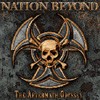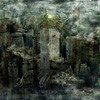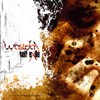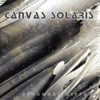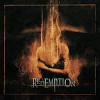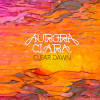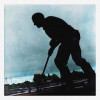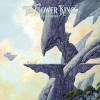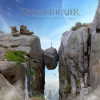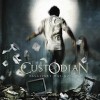"“Mirror your World through my Touch…Set me Free, oh Set me Free”These words, from the song Colours on Magenta’s new We Are Legend album, are about Vincent Van Gogh, but they could also describe the feelings engendered by this imaginative and impressive release from the premier Welsh Progressive Rock band. We Are Legend underlines Magenta’s outstanding musical credentials, but they have far more than just great technique, imbuing their songs with melodies to stir the soul and stories to fascinate the mind.In a recent interview with Peter Jones on his Progzilla Radio show, Tales from the Tiger Moth, Magenta main-man Rob Reed revealed that he wanted this Magenta album to be “different”. Since their last album, The Twenty Seven Club in 2013, Magenta have overcome some issues, including illness, but Reed revealed that he had struggled in writing a new Magenta album after the peaks he felt they had achieved. As a result he channelled himself into his own excellent Mike Oldfield inspired solo Sanctuary projects and helping Christina Booth complete her fine emotional solo album The Light. The results of this break have clearly refreshed Reed as We Are Legend projects Magenta into a new trajectory, fizzing with energy and creativity.Magenta have never made compromises in their music, ever since Rob Reed decided to stop trying to pursue mainstream success and produce exactly what he wanted to – a truly epic and distinctly ‘uncool’ double debut album Revolutions in 2001 shamelessly referencing his 1970s Prog heroes, Genesis and Yes in particular. Magenta went on to develop their own distinctive sound built around the trademark triad of the pyrotechnics of Chris Fry on electric guitars, Christina Booth’s pure, luminescent vocals and Rob Reed’s mastery of the Piano, Hammond and Moog. However, when considering the new album Reed initially felt restricted by that template and felt he did not want to re-tread old ground. Therefore, he decided to channel what he felt was ‘negativity and angst’ about the direction of the next album, similar to his frustrations prior to Revolutions, and decided to “make a record for me – I will use whatever I want on it”, leading to an album which includes distinctly ‘un-Magenta’ elements such as drum loops, sequencers, dashes of dance music rhythms and heavy guitars as Reed and the band stretch their boundaries. But long-term Magenta fans should have no fear, they are still recognisably Magenta, but noticeably reinvigorated with energy, sounds and an edge, showing a band that does not compromise and wants to move on in terms of its expression and imagination.In a break from previous albums, there is no overall ‘concept’ around this release. Magenta have chosen to present three distinct songs with separate narratives and atmospheres, but there is a cohesive feel to the whole album. In a throw back to vinyl days there is one epic ‘side long’ track and two shorter songs (both in the region of ten minutes) echoing the layout of classic Yes albums Close to the Edge and Relayer, but let’s be clear, Magenta are no ‘Prog by numbers’ clones and have produced a remarkable and vibrant progressive rock album.The epic opening track, Trojan, starts atmospherically with synths which then explode with squealing guitars over a juggernaut of bass and drums, immediately evoking a sense of science fiction. Steve Reed, lyricist and Rob’s older brother, has shared that the theme of this piece was initially suggested by the opening few minutes of the music alone, presented to him by Rob, the musical ideas helping to inspire Steve’s lyrics towards a peculiar yet interesting sci-fi story. In short, huge robots emerge from the sea and initially appear to be benign, but ultimately act as ‘Trojan horses’ to take over the world for a long forgotten and banished human species that took to living beneath the seas and have now returned to reclaim the Earth!If you think that’s bonkers then wait until you’ve heard the music which sounds like some sort of spectacular soundtrack for a Japanese Manga or Studio Ghibli cartoon. This is pulsating music. sweeping across the narrative in a range of distinct parts. Rob Reed revealed that he was influenced by Marillion’s Misplaced Childhood suite, which has the reputation for being epic in length, but is a series of linked songs. Similarly in structure but not in style, Trojan is a series of song sections over 26 minutes ‘sewn together’ (as Reed puts it), although you can hardly see the joins, such is the skill of Reed and the band.Following the opening cinematic section, Chris Fry kicks in with a heavy guitar riff and Christina Booth, over shimmering dance inflected keyboards, chants the early panic of those on land confronted with the slow, emphatic progress of these strange new conquering robots. The atmosphere changes to the gentler perspective of a little girl in Japan who thinks of the robot as a ‘Tin Man’, with imagery akin to Ted Hughes’ Iron Giant. Booth shows great vocal versatility as she switches from the softer vision of the small girl to more dramatic parts of the narrative as the story develops. The music flows descriptively – you can visualise the slow, inexorable march of the robots as Magenta interweave sinuous dance inflected keyboards, reminiscent of Faithless, with passages of fluid, dreamy blues tinged guitar at some points. Pastoral guitars underpin a peaceful passage with Booth’s soft vocals before distorted guitar breaks in, possibly to indicate that the ‘paradise’ of ease brought by the robots will be ultimately destroyed.I hope you’re keeping up!!!Don’t worry, Magenta’s imaginative music carries you along and you may not always understand (or even care!) exactly what is happening as you dive into the rich multi-layered elements that make up the epic sound and story. Steve Reed has always sought to look at subjects from unorthodox and differing perspectives, such as the ‘glutton for punishment’ angle of the classic Gluttony from Seven. Similarly, in Trojan he seemingly shifts from the fate of the land civilisation to the perspective of the long exiled species of undersea dwellers held within the Trojan Robots, looking forward to hopefully reclaiming their world. A beautiful acoustic guitar led section of hope emerges with Christina singing beautifully;“The light it fades, When you all will sleepWith love to share, Anger drifts awayAs the hurting stops, With the time to findPaths to tread in this world…I see the need inside your soulThe love that’s in your heart.”Such poetic and touching lines perfectly match the emotive music as Fry’s languid guitar flows along before ascending into a brief transcendent solo, characteristic of his more restrained performance throughout the album. It’s remarkable that amidst this science fiction complexity they can skilfully insert a song of such delicacy and feeling, underlining that for Magenta the priority is always melody and emotion, not the sterility of mere technique without feeling. Jonathan ‘Jiffy’ Griffiths shows his versatile and subtle percussive skills alongside Fry’s eerie, expressive guitar as the piece sinisterly shifts towards the treachery of the robots as they turn against the land dwellers. The whole composition comes full circle as the dramatic robotic fanfare from the intro re-emerges with soaring guitars over pulsing synths and as one civilisation falls another rises from within the Trojan robots with hope:“At the break of day, As the silence roarsAnd the dust it falls, Open up the doorsWhen we’re stepping out, Walk into the light, Man’s re-birth.”Both musically and through the narrative, the opening track is quite a ride! Definitely a piece that, like most great tracks, pays repeated listenings with a strange story that reveals itself more over time.Legend is another imagined narrative song with a post-apocalyptic sci-fi feel, partly inspired by the films Omega Man and I am Legend, and the intro certainly sounds cinematic as weird sounds throb and pulse before a crunching combination of drums, bass and guitar puts us firmly in the stark post-apocalyptic setting. Dan Nelson, long time live bassist, has now fully joined the band and with new member Griffiths’ fine rhythmic work on drums they underpin this album with precision and power, particularly on the leviathan that is Legend. Christina Booth sings powerfully as this driving song describes the fate of one of the last men on Earth, before Reed’s synths and Fry’s weird distorted guitars intertwine in a nightmare musical depiction of the vampiric state into which humanity descends. A strange but captivating song, it concludes almost elegiacally with the last human trying to hang on to the final vestiges of his humanity as the vampires hunt down the weak and vulnerable, even amongst themselves. Perhaps it’s a comment on the self-consuming and self-destructive nature of much of our society… or just a dramatic but depressing story about zombies and vampires!! Who knows, but the journey is compelling.Colours is another remarkable song about the tortured and tragic soul of an artist. It starts with a beguiling musical box intro before erupting into an intense passage with staccato and textured sounds underlying Booth’s manic vocals. The evocative and multi-layered music conveys images of the artist, on the edge of sanity, passionately and frantically applying his paint to the canvas. Apparently Rob Reed presented the music to lyricist Steve by simply saying “It’s about Van Gogh”, but he had no words, making it remarkable that Rob was able to so fully evoke the musical images of a complex and tortured individual obsessively daubing paint onto canvas to try and express his innermost thoughts and feelings. Flute-like melodies move through to subtle blues inflected guitar, a short fluid Hammond Organ passage followed by a soaring guitar vignette by Fry, with Nelson in fine form, constantly changing the colours of Magenta’s musical palette. Van Gogh perceived everything in swirling vibrant colours, mirrored by the music as the impetus picks up with insistent synthesiser, orchestral keyboards and driving guitars, Steve Reed adding one of his best lyrics to reflect the power of the music and convey the artist’s sad decline in a maelstrom of creativity which he cannot sustain. The music and lyrics combine so well in this remarkable offering, building darkly to an intense finale with Rob Reed excelling, culminating in intensely sung and chilling lines:“Save me, love me, Gun in your hand and I’m waiting to dieSky bright, sun shineField like the sea, I’m wanting the endDarkness, silence, Near to the end TheoPlease set me free, set me free.”The ending is rather enigmatic, but there is a suggestion that Van Gogh’s brother Theo shoots him to put an end to his suffering in an act of mercy. Whether fact or not, it is certainly an evocative and emotive song which displays the combined talents of Magenta. A real showcase for the band, particularly Booth, as the song builds to its dramatic ending, it has already become rather a live favourite, no wonder as it combines the music and lyrics so well.In We are Legend Magenta have created one of the best albums of their career by daring to stretch and express themselves with great integrity and dazzling imagination. This will be regarded as one of THE progressive rock albums of 2017 – Magenta have definitely added to their own ‘Legend’." - The Progressive Aspect
$14.00




